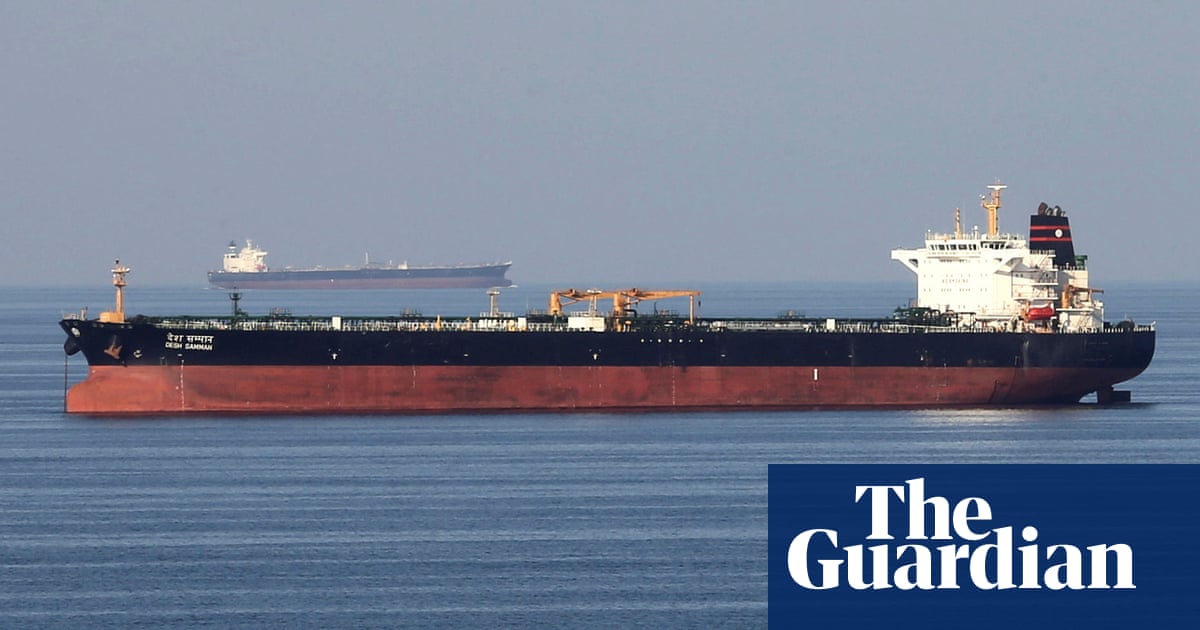US strikes onIrancould damage global economic growth, the head of the International Monetary Fund has warned.
Director Kristalina Georgieva told Bloomberg TV that the IMF was watching energy prices closely, warning a rise in oil prices could have a ripple effect throughout the global economy.
“There could be secondary and tertiary impacts,” she said. “Let’s say there is more turbulence that goes into hitting growth prospects in large economies – then you have a trigger impact of downward revisions in prospects for global growth.”
The Iranian parliament voted toshut down the vital shipping channel through the strait of Hormuzover the weekend, in a retaliation against Donald Trump’s attack on the country.A fifth of the world’s oil consumption flows through Hormuz, which links the Persian Gulf to the Gulf of Oman and the Arabian Sea beyond.
If the strait is shut, it could create an oil supply shock that drives up energy prices, pushing up inflation and hitting economic growth.
The price of oil initially jumped by more than 5% late on Sunday to a five-month high of $81.40 (£60.58), but later fell back slightly. On Monday morning, Brent crude rose to 1.2%, at $77.94 a barrel.
The price could hit $110 a barrel if oil flows through the critical waterway were halved for a month and then remained down 10% for the following 11 months, according to new estimates from the investment bank Goldman Sachs.
Marco Rubio, the US secretary of state, has warned it would be “economic suicide” for Iran to close the strait and pushed for China to influence Tehran on the issue.
He told Fox News: “I encourage the Chinese government in Beijing to call them about that, because they heavily depend on the strait of Hormuz for their oil.”
Holger Schmieding, the chief economist at Berenberg Bank, said the strait of Hormuz is “the key economic risk to watch”, but argued that a disruption to energy flows in the Gulf region “seems unlikely”, as trying to limit energy exports would be a high-risk strategy for Tehran.
Analysts at the broker RBC Capital Markets said there was a “clear and present risk of energy attacks”, which could come from Iranian-backed militias in Iraq that operate near the Basra energy facilities. However, they added it could take days or weeks before the Iranian response became clear.
Sign up toBusiness Today
Get set for the working day – we'll point you to all the business news and analysis you need every morning
after newsletter promotion
“Above all, we would caution against the kneejerk ‘the worst is behind us’ hot take at this stage,” they said. “President Trump may indeed have successfully executed an ‘escalate to de-escalate’ move, but a wider expansion cannot still be ruled out at this juncture. We may be in theRumsfeld ‘unknown knowns’ matrix in this nine-day Middle East military conflict.”
Two supertankers, each able to move about 2m barrels of crude oil, U-turned in the strait of Hormuz over the weekend after the US airstrikes, according to vessel data tracking data compiled by Bloomberg. It reported that the tankers, the Coswisdom Lake and South Loyalty, entered the strait but changed course on Sunday, sailing south away from the Persian Gulf.
Global stocks were subdued on Monday. In the UK, the FTSE 100 blue chip index slipped 0.2% in early trading, and the oil companies BP and Shell were among the few risers.
In Asia, stocks were mixed, with Japan’s Nikkei 225 index down 0.1%, and Australia’s S&P/ASX 200 index down 0.4%. However, China’s CSI 300 rose 0.3% and Hong Kong’s Hang Seng gained 0.5%.
Gold, which is traditionally seen as a stable asset during volatile periods, slipped 0.4% on Monday to $3,354.03 an ounce. The metal has already hit multiple record highs this year as investors have sought somewhere to park their money during global uncertainty.
